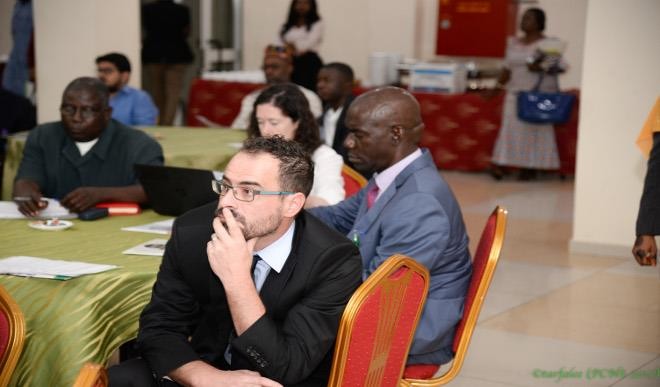PCNI, Local and International Partners close ranks for North East Recovery
From Tuesday July 4 to Wednesday July 5, the Presidential Committee on the North East Initiative (PCNI) held the maiden edition of its Monthly North East Stakeholders Coordination Forum. The event brought together Key Federal Ministries, Departments and Agencies, State Governments, Local and International NGOs, Development Partners and Civil Society Organizations. The forum was convened […]


From Tuesday July 4 to Wednesday July 5, the Presidential Committee on the North East Initiative (PCNI) held the maiden edition of its Monthly North East Stakeholders Coordination Forum. The event brought together Key Federal Ministries, Departments and Agencies, State Governments, Local and International NGOs, Development Partners and Civil Society Organizations. The forum was convened to establish an agreed-upon monthly system for coordinating the wide range of state and non-state actors presently engaged in the recovery and rehabilitation of the North East. In the course of the forum, the various partners presented overviews of their operations, highlighting specific challenges to their work while offering their unique perspectives on addressing the challenges and deficiencies confronting efforts to tackle the humanitarian crisis in the region.
In his opening remarks on Day 1, the PCNI Chairman, Lt. Gen. T.Y. Danjuma (rtd), represented by the Vice Chairman, Tijjani Tumsah said that the monthly coordination forums would afford all stakeholders the opportunity to review their efforts, identify any gaps and shortfalls, and avert any duplication of effort or wastage that could potentially arise in the delivery of interventions. In their presentations, the PCNI leadership stressed that the North East should not be seen as a field in which different intervention bodies compete but as a space in which partners complement each other’s efforts.
Thereafter, the participating Federal and State Government Representatives led by the Office of the Vice President which constitutionally oversees humanitarian and economic challenges in the country, reached a consensus to universally adopt the PCNI’s system of Communication, Collaboration and Coordination across all sectors requiring intervention in the North East.
On Day 2, Key International Donors, Corporate Foundations, North East Community Based Organisations, Local and International NGOs and important representatives of the Nigerian Private Sector were encouraged by the PCNI agenda to deliberate significantly on the most urgent priorities and gaps in the sectors of Food Security, Health, Shelter, Security, Child and Gender Protection, Education, Early Recovery and Livelihood Support for the denizens of the North East. The session also reviewed the PCNI proposed new monthly coordination system for communication, collaboration and coordination.
The representatives of community based organizations commended PCNI for facilitating a forum in which they could engage directly with other partners and pledged to work closely with the INGOs by availing them of their local knowledge of impacted communities.
At the close of the event, the participants issued a communique resolving among other things to recognize the primacy of the PCNI as the apex federal coordinating body and to harmonize their intervention efforts in compliance with the Buhari Plan. They also committed to aligning their efforts with the PCNI support and delivery frameworks designed to prevent duplication and saturation of efforts; to rapidly mobilize resources towards needy areas and entrench a culture of transparency in the management of aid efforts in the North East.
The North East Stakeholders also collectively agreed to convene every month using the many communication and collaboration tools provided by PCNI to exchange information, update their operational circumstances and provide consensus on the coordination and delivery priorities identified by PCNI in order to achieve the strategic goals of the Buhari Plan.
